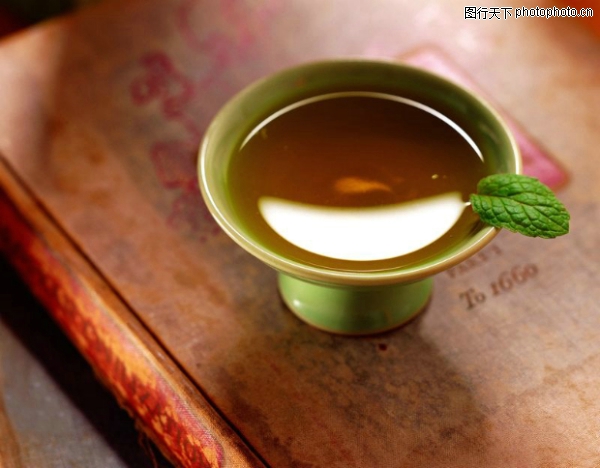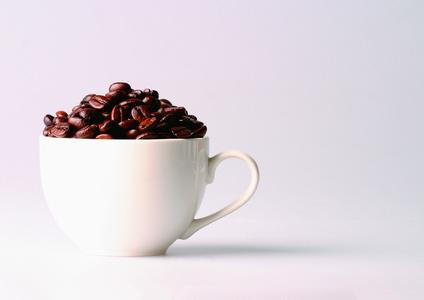Will the national drinking status of tea be replaced by coffee in the future?

According to a survey conducted by the Voice of America (VOA), more and more Chinese are turning to another drink-coffee. Coffee has become more and more popular among Chinese people living in foreign countries and big cities at home. At the same time, it is also a popular crop in the mountains of southern Yunnan. In big cities like Beijing and Shanghai, coffee shops seem to be everywhere in the streets. This kind of coffee operates coffee brands from all over the world, such as Starbucks in the United States, coffee from Korea to accompany you and so on. VOA interviewed some Chinese women in the United States to find out if they had changed their drinking habits after moving to the United States. the questions are as follows:
Coffee or tea? What kind of drink do you prefer?
Tea drinking has long been condensed into culture and tradition in many Asian countries, such as China and Japan. But is that changing? Do young people in Asia now prefer coffee to tea?
Ms. Su is from China. She has lived in the United States for eight years. Before that, she lived in Italy for two years. VOA interviewed her at a Vietnamese noodle restaurant near Washington, D.C. Ms. Su said her love for tea is absolutely loyal, but added that this may not be the case for the younger generation in China today. VOA reporter Anna asked: "do you prefer coffee or tea?" Sue said, "I love tea." "do you think Chinese people like coffee more and more?" "I think they must like coffee more and more, after all, the younger generation likes coffee," Su said. "
Many young Chinese use coffee more as a social drink. Ms. Lin lives in the United States, but she comes from Fujian, a famous tea village in China. She used to drink only tea in China, but now she drinks both. "I would like to say that I absolutely like tea when I come back to China," Ms. Lin said. "but you know, under the influence of Starbucks and various brands of coffee, I like coffee and tea equally."
Lin also said that drinking coffee is a social activity for her, and she and her colleagues like to sit and talk while drinking in the coffee shop, while tea is more about family memories. She grew up in Fujian Province, a major tea-producing province, and in her childhood memories, the whole family used to sit together at night, make a pot of hot tea and talk about what happened during the day. So now, even a wisp of the aroma of Fujian tea can make her relive these warm family silhouettes in her mind.
Voyo, another Chinese woman who currently lives in Washington, D.C., says her taste has changed since she moved to the United States-becoming a "coffee convert", that is, a more coffee drinker.
"I liked to drink tea before I came to the United States," she said. But now I love coffee. In fact, I am becoming a heavy coffee lover more and more. I have grown from one drink a day to three drinks a day. If I don't drink it all day, I will have a headache. "
The Beijing Coffee Industry Association has published such information: the average person in China drinks five cups of coffee per year. This figure is well below the world average of 240 cups a year. But the association predicts that the amount of coffee consumed by Chinese people will increase by 15% a year in the future.
Source: tea Weekly
Editor: tea bubble net Lao Niu
Important Notice :
前街咖啡 FrontStreet Coffee has moved to new addredd:
FrontStreet Coffee Address: 315,Donghua East Road,GuangZhou
Tel:020 38364473
- Prev

Drinking coffee and living a healthy life four cups of coffee a day improves bowel cancer
Recently, a new study from Harvard Medical School found that drinking four cups of coffee a day can improve the survival rate and quality of life of patients with colorectal cancer. In the new study, the researchers studied nearly 1000 patients with stage 3 colorectal cancer (cancer cells have metastasized to nearby lymph nodes, with a recurrence rate of 35%). All patients underwent three-stage colorectal cancer surgery and chemotherapy. It turns out that compared with drinking 1.
- Next

Exploding the three factions of Chinese cafes
At present, China's per capita coffee consumption is 5 cups per year, which is far lower than that of Japan and South Korea, with an average of about 300 cups per person per year. However, coffee consumption in China continues to grow at an annual rate of 15% to 20%, making it the world's most potential coffee consumer. In the current Chinese market, there are three forces active in China, Europe and the United States, and they are using
Related
- Unexpected! Ruixing Telunsu lattes use a smoothie machine to foam milk?!
- % Arabia's first store in Henan opens into the village?! Netizen: Thought it was P's
- Does an authentic standard mocha coffee recipe use chocolate sauce or powder? Mocha Latte/Dirty Coffee/Salty Mocha Coffee Recipe Share!
- What is the difference between Vietnam egg coffee and Norway egg coffee? Hand-brewed single product coffee filter paper filter cloth filter flat solution!
- What is the difference between sun-cured and honey-treated coffee? What are the differences in the flavor characteristics of sun-honey coffee?
- How to make Italian latte! How much milk does a standard latte use/what should the ratio of coffee to milk be?
- How to make butter American/butter latte/butter Dirty coffee? Is hand-brewed coffee good with butter?
- Is Dirty the cold version of Australian White? What is the difference between dirty coffee/decent coffee and Australian white espresso?
- Relationship between brewing time and coffee extraction parameters How to make the brewing time fall to 2 minutes?
- Got entangled?! Lucky opens a new store, Mixue Ice City, and pursues it as a neighbor!

